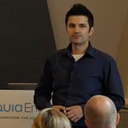Great article as always and of course I do have a few concerns that I would like to share with you.
While the past may provide a more stable foundation, it is not without its own challenges. Historical events can be complex and multifaceted, making it difficult to draw simple lessons from them. Additionally, the past is not a static entity, and the meaning of events can change over time as new information and perspectives emerge.
The idea of using the past to predict the future assumes that the past and future are linked in a causal relationship. While this may be true in some cases, it is not always the case that understanding the past will lead to a clear understanding of the future. The future is shaped by a complex interplay of various factors, and it is difficult to isolate the impact of any single element, such as the past, on the overall outcome.
The past can sometimes be a poor indicator of future events because it does not account for the potential for change and adaptation. Just because something has happened in the past does not mean that it will necessarily happen again in the future, especially if the context or circumstances have changed.
The past can also be a source of bias and misinformation, as it is often shaped by the victors of history. This means that the past may not always provide an accurate or balanced representation of events, making it difficult to rely on it as a basis for predicting the future.
